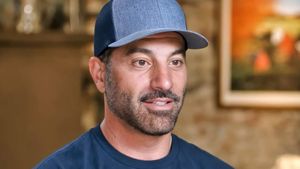A woman should be
allowed to deduct her $25,000 sex-change operation on
her federal taxes because her gender identity disorder was a
medical condition, her lawyers argued Thursday.
The U.S. tax
agency would not let Rhiannon O'Donnabhain take the
deduction, claiming that her sex-change operation was
cosmetic and not medically necessary.
O'Donnabhain is
suing the Internal Revenue Service to get the deduction
accepted in a potentially precedent-setting case that could
affect thousands of people a year in the United States
who undergo similar operations.
Both sides rested
their cases on Thursday before a tax court judge in
Boston, who will decide the case.
O'Donnabhain, 63,
said her case is about more than just money.
''I hope this
case sends a clear message that transgender people deserve
dignity, respect, and equal treatment, not just for our
medical care but in all aspects of our lives, just as
every human being deserves dignity, respect, and equal
treatment,'' she said outside of court.
Bennett Klein,
one of O'Donnabhain's lawyers, attacked the testimony of a
high-profile government witness who testified that gender
identity disorder is not a disease.
Klein pointed out
in court that forensic psychiatrist Park Dietz had
submitted what he called ''false testimony'' in the 2002
trial of Andrea Yates, a Texas woman who drowned her
five children. Dietz told jurors in that trial that an
episode of the television series Law & Order
depicted a woman who was acquitted by reason of
insanity after drowning her children. It was later
learned that no such episode existed, and Yates's conviction
was overturned.
Dietz
acknowledged Thursday that he had made a mistake but said
his testimony was ''erroneous, not knowingly false.''
Dietz testified
that for gender identity disorder or any other disorder
to be classified a disease, it has to have ''an underlying
pathological process.''
''There are
variations in human nature, and these variations are not
diseases,'' Dietz said on the stand.
Karen Loewy, a
lawyer for the Gay and Lesbian Advocates and Defenders
representing O'Donnabhain, said there is medical consensus
that gender identity disorder is a ''legitimate
serious medical condition.''
IRS lawyers were
unavailable for comment after the court session .
Attorneys were
given a November 6 deadline to file briefs to Judge Joseph
Gale. There was no word when he will decide the case. (Mark
Pratt, AP)





































































Charlie Kirk DID say stoning gay people was the 'perfect law' — and these other heinous quotes